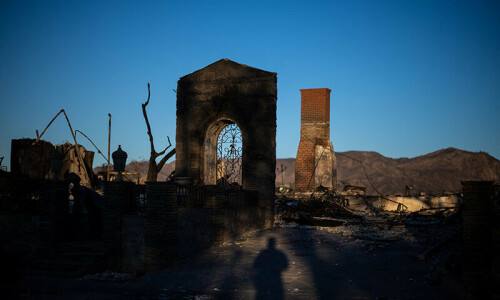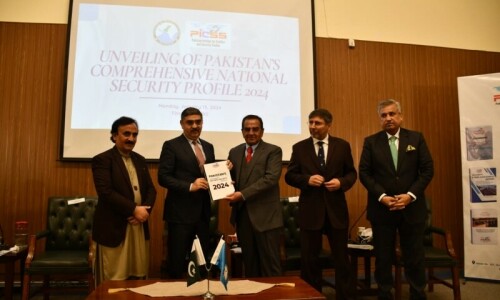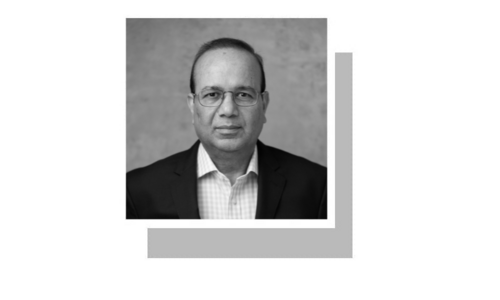Caretaker Information Minister Murtaza Solangi said on Tuesday that international observers and journalists would visit Pakistan to monitor and cover the February 8 general elections.
Last year in October, the Election Commission of Pakistan (ECP) had asked the Foreign Office to take all necessary steps to invite international observers for the elections. Later that month, the electoral watchdog had extended an invitation to international observers.
In a letter sent to the secretaries of interior and foreign affairs ministries, the ECP had stated, “We would take this opportunity to welcome international observers to observe the polling process neutrally, impartially with their very well-articulated feedback and reports.”
Addressing a news conference today in Islamabad, Solangi regretted that some people were spreading rumours that no international observers or journalists were visiting Pakistan to cover the elections.
He said that those spreading such rumours were of the view that “we will conduct a burqa-clad election”.
“There is no truth in it,” Solangi said. “I am here to present some facts about this,” he said. The minister said that 49 visas had been issued so far to foreign journalists while 32 were currently under process.
“I can tell you that our high commission in New Delhi has received around 24 requests that are also under process,” Solangi said. “The total requests received from various outlets are 174,” he said.
Commenting on the details of international observers, the information minister said 25 applications from Britain, eight from the Russia, 13 from Japan, five from Canadian parliamentarians, two from South Africa, and five requests from Commonwealth nations were also being processed.
Solangi confirmed that local journalists had been given 6,065 accreditation cards. Of these, 1,200 were from Lahore, 1,470 from Karachi, 600 from Quetta, 1,050 from Peshawar, 355 from Hyderabad, 250 from Faisalabad and 290 from Multan, he said.
The information minister said accreditation cards issued to foreign journalists and international observers were only restricted to Karachi, Lahore, and Islamabad.
“But if any foreigner wants to visit any other city, it is being processed on a case-to-case basis,” he added. “Despite the passing of the January 20 deadline, election commission and information ministry officials are looking at the submitted requests,” he said.
Solangi said representatives of several international media outlets including CNN, BBC, Germany’s Deutsche Welle News and some from Japan already had a presence in the country.
Information Secretary Shahera Shahid, Director General of Radio Pakistan Saeed Ahmed Sheikh, and Executive Director General External Publicity Wing Ambreen Jan were also present at the press conference.















































Dear visitor, the comments section is undergoing an overhaul and will return soon.